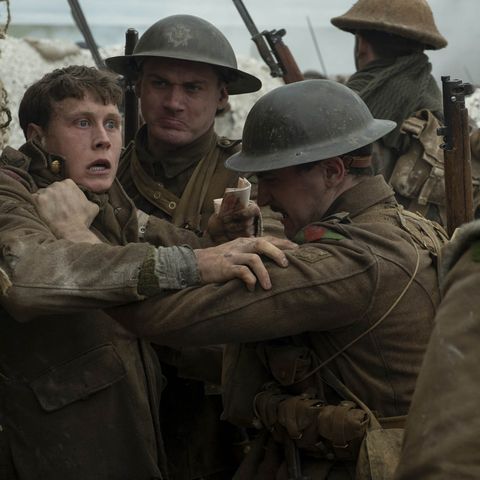By Ryan McCarthy || Contributing Writer

In April of 1917, Lance Corporals Schofield and Blake were given a seemingly impossible task of delivering a message in order to stop 1,600 of their own men from walking into a German death trap. Along the way, they had to go through hell and fight for their lives in a race against time to complete this seemingly impossible task. 1917 was directed by Sam Mendes and received three academy awards for best cinematography, sound mixing, and visual effects. 1917 blew me away and is one of the most epic war movies of all time.
Some movies need to be seen in theatres, and this is one of those movies. 1917 distinguishes itself by using one-shot directing, which means that the entire movie was filmed in one take, by a single camera. This method of filming results in the main characters being followed throughout the movie. I think the one-shot filming was perfect for a war movie because I was experiencing the story vicariously through Scholfield and Blake. This method definitely captured the horrors of war. For example, I felt anxious when they were in dangerous situations, and I felt relieved once the movie was over. The visuals were breathtaking which is why they won three Oscars. The trenches were trenches, the explosions were explosions, and everything about this movie just felt real. In addition, the costumes and props were impeccable. It’s like they took them out of a museum.
I like that this movie was one shot, but that type of directing comes with some side effects. The entire movie probably covered 12 hours of the story, and there was minimal plot development. In those 12 hours, the storyline was unchanging throughout. The audience had no idea what was happening on either side of the infantries, and they only saw what happened to these two lance corporals. The narrative was flat, but that is to be expected in a one-shot movie.
The actors, especially George MacKay and Dean-Charles Chapman, played their characters with such naivety to a point that the audience could relate. I was able to relate with these characters, especially because soldiers in World War I were as young as 16. The movie revealed that back in 1917, the idea of going to France to fight for your country sounded great until you actually got there. You got to see that these characters truly had no idea what they signed up for. The fact that there were 1,600 lives at stake was an insane amount of pressure to put on two teenagers. I was drained after watching this movie, but I felt a sense of accomplishment with the characters after it was over. I hope war movies start to pick up on this single-shot method because it greatly enhances the experience of the audience. 1917 is one of the best war stories I’ve ever experienced. 8.9/10.
Junior Ryan McCarthy is a Contributing Writer. His email is rmccarth@fandm.edu.